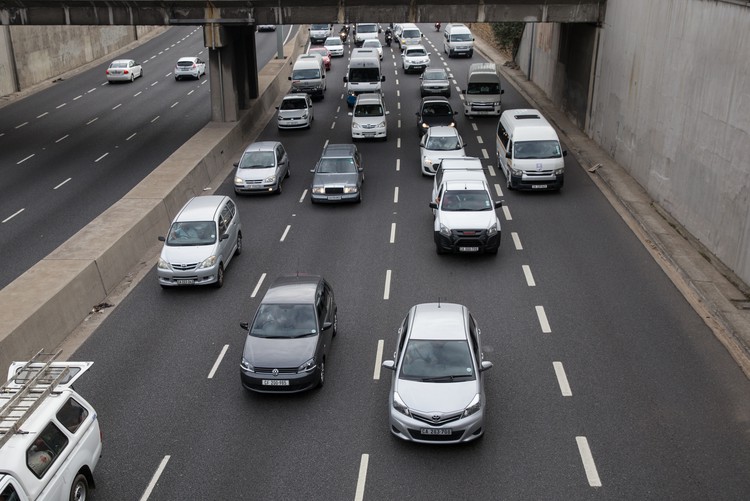
Many of the e-hailing taxis roaming Cape Town’s roads have no licences, says the writer. Photo: Ashraf Hendricks
20 March 2019
More than half the e-hailing taxis operating on the roads of the Western Cape are probably illegal.
As a taxi owner with 29 years’ experience in transport in the Western Cape, I am concerned about rising crime and violence in e-hailing and metered taxis in Cape Town.
E-hailing, through apps like Uber and Taxify, has been a revelation for our industry and consumers throughout the world have taken to it. Many taxis and even fleets have joined these online platforms and some have started their own apps.
However, legislation has failed to keep up with innovation. Thousands of e-hailing vehicles are operating on our roads without any operating licences and our provincial government is fully aware of this.
By law, all vehicles used in public transport in the Western Cape must be fully vetted by the Provincial Regulatory Entity in Athlone. This includes metered taxis, minibus taxis, scholar transport vehicles. The vehicle must be checked and photographed, a roadworthy check must be done, the vehicle must have correct signage , showing the number of the licence, the number of passengers allowed, and must be registered with the department of transport.
According to the City of Cape Town there are 2,300 registered vehicles operating in the city. Industry estimates are that there are about 7,000 Uber and Taxify vehicles operating, suggesting that some 4,700 vehicles are not legally registered.
The City impounds illegal vehicles from time to time, but the provincial government under MEC Donald Grant has not stopped the companies themselves placing illegal vehicles on our roads. He has threatened to cancel licences of drivers and impound illegal vehicles (if caught) but why not stop them from ever reaching our streets in the first place?
Passengers are being assaulted, raped and robbed. And since the introduction of cash in e-hailing, drivers are being targeted.
If a vehicle is not registered, the driver should not be able to reach my or your home. It’s as simple as that.
The number of legally registered e-hailers probably outstrips demand by thousands but no one is stopping the continuous proliferation of these unregistered vehicles. Drivers are struggling to earn a living and competition is fierce. Putting thousands of cars on the road is simply not job creation and certainly not a sustainable solution.
The recent stabbing of two young girls in Durbanville and last week’s murder of a Taxify driver has highlighted the need for more controls.
The law allows for a register of drivers as well as a register of vehicles, and taxi associations have called for this for some time. At present, whoever is in possession of the cellphone in the car is the person who collects you or your family. Nothing stops a driver from renting his phone out or asking a family member to drive for him and this is the risk we face.
Few passengers compare the driver with the photo supplied and that’s why driver registration is vital and a simple measure that can go a long way to help preventing crimes being committed.
I have repeatedly asked for tighter regulation over many years, but nothing has been done. Minister Grant leaves office in a few months, his administration will get a reshuffle and this issue may only be raised again when something tragic occurs.
Keeping illegal vehicles off the roads, registering drivers, skills training and empowerment solutions for our industry should be a priority. Now, not after the elections.
David Drummond is chair of Section 66 Association, a former vice-chairperson of the Western Cape Metered Taxi Council, and an owner of metered taxis and of an e-hailing app. Views expressed are not necessarily those of GroundUp.